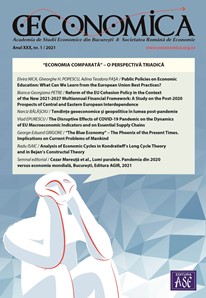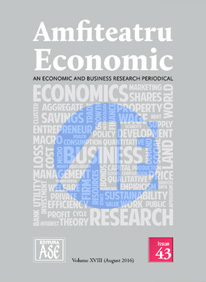
State-Building and Breaking
Book review – Why Nations Fail:
The Origins of Power, Prosperity, and Poverty,
by Daron Acemoglu and James Robinson
We live in a world beset by inequalities. The differences between the highest and the lowest are, in stark economic terms, the highest they have ever been. Moving closer to the middle of the pack, we also see the frustrating persistence of lesser differences, that are nonetheless significant for politics, migration and consumption. This is apparent in the EU and is also apparent in the United States. The differences between parts of an interlinked system create a flow, generating energy that, in the case of society, may translate into vibrancy, creativity and entrepreneurship, or tensions, recrimination and violence. The “what” and the “who” of the matter stare us in the face every day and sometimes rile us from the polls and the voting booths. The “how” and the “why” are still open to discussions, and true answers are not forthcoming because they will invariably reflect our preconceptions.
Currently, more than one billion people in the world live on less than one dollar per day. Great advances have been made, yet the absolute number of impoverished people keeps going up. But there are also almost 15 million millionaires. In fact, the richest 85 people in the world own the same as the bottom half of the population. One of the most pressing problems today is global inequality, reflected also in the widening gap between different nations. In the past 60 years, the average incomes of those living in the richest and poorest countries in the world have increased by 135% in absolute terms. The average American today is 90 times richer than the average citizen of the Central African Republic. The rich are getting richer, while the poor are apparently getting poorer also when it comes to countries, and the most common explanations for this have ranged from culture, geography, or different governance systems, to hazard, ignorance, or lack of knowledge about the right policies.
Daron Acemoglu, one of the most cited economists in the world and a well-known professor of economics at MIT, along with James Robinson, prominent professor at the Harris School of Public Policy Studies of the University of Chicago, offer us an alternative theory in their 2012 book Why Nations Fail: The Origins of Power, Prosperity, and Poverty. Their explanation for why some countries are poor while others are prosperous has institutional foundations: it is the quality of the institutions underlying economic and political life that influences wealth accumulation. The authors create a sharp distinction between inclusive institutions, which encourage productivity, education, technical progress, and extractive institutions, which only take wealth away from one part of the society, for the benefit of the other. It is the former type of institutions that support the creation of wealth inside of a nation even beyond the world knowledge frontier. When the country is playing at catch-up growth, extractive institution might see it through to some stage of development, but it will inevitably falter, as true competition and an appropriate supply of public goods comes from inclusive institutions.
How can the same person be wealthy in one part, and poor in another? Take the example of North and South Korea, carefully analyzed in the book, where geography is the same and people share a similar cultural background, yet their economic paths have diverged since the separation of the two in the 1940s and especially since the later reforms in the South. Or the case of the two towns of Nogales, located on the opposite sides of the US-Mexican border: how come the Mexican Nogales is so poor compared to the American Nogales that is so rich? While almost all features are identical between the two, the answer lies in the difference in rules governing them.
Based on fifteen years of original research, Why Nations Fail is constructed around numerous striking historical and geographical examples, from the Roman Empire and medieval Venice, to the Soviet Union, Europe and Latin America, all supporting its central theory. It discusses the development, or lack thereof, of several African nations, the context of China’s growth and the fall of the United States, along with many other crucial episodes of development, all through an institutional lens. Of course, one may discuss which historic societies were inclusive and which were extractive, and one may also point out that the only societies exhibiting continuous growth are the ones still growing today which may lead to a circular argument. Nevertheless, the authors make the bold prediction of Chinese growth eventually faltering because of its extractive institutions, while the West will continue to progress.
Acemoglu and Robinson perform exceptional advocacy in favor of the importance of institutions and their quality for the progress and prosperity of a nation, supporting their theory with well-developed arguments and detailed discussions. Despite being published 5 years ago, the book answers many of today’s inequality-related questions. It is not a complete answer by any means, since counter-factuals may be observed around the world, from Zimbabwe to India. Crucially, the authors leave out competition between states as a factor of success or failure.
For anyone interested in truly understanding development, poverty and prosperity issues, Why Nations Fail is a must-read, as it will shake many beliefs, destroy numerous myths, and give its readers a completely new perspective upon our world and its problems.








